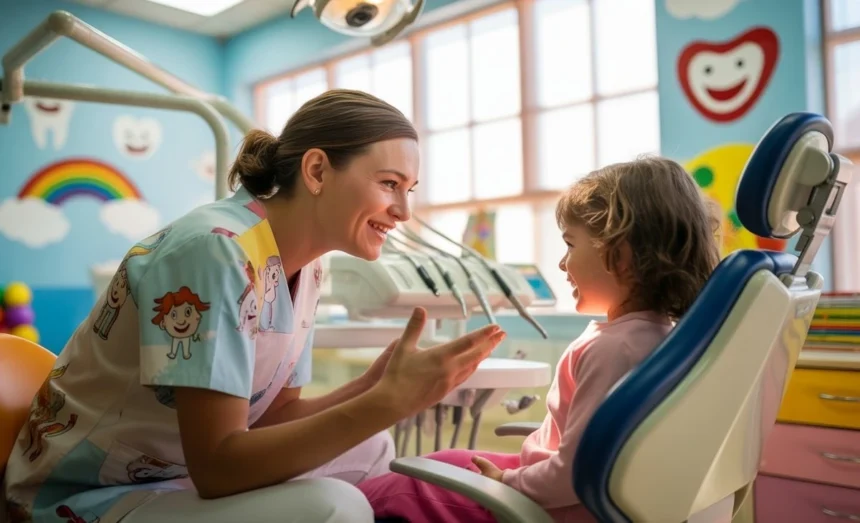A trip to the dentist can be a source of fear for many people, and children are especially vulnerable to this anxiety. The unfamiliar sights, sounds, and sensations of a dental office can feel overwhelming for a young mind. Understanding the root causes of dental anxiety is the first step for parents and caregivers to help their children build a positive relationship with oral health care. Addressing these fears early can prevent a lifetime of avoidance and ensure they receive the care they need for healthy smiles.
Why Do Children Fear the Dentist?
Several factors can contribute to a child’s fear of dental visits. Recognizing these can help you tailor your approach to provide the best support.
Fear of the Unknown
For many children, the dental office is a new and strange environment. The large chair, bright lights, and unusual tools can be intimidating. They don’t know what to expect, and this uncertainty can easily lead to fear. A child’s imagination might fill in the gaps with scary scenarios.
Sensory Overload
Dental clinics are full of unique sensory experiences. The whirring sound of a drill, the scraping sensation during a cleaning, and the feeling of having instruments in their mouth can be overwhelming for a child’s developing senses. These sensations are unlike anything they experience in their daily lives, which can trigger a fearful response.
Influence of Others
Children are very perceptive and often pick up on the anxieties of those around them. If a parent, sibling, or friend expresses fear or talks negatively about their own dental experiences, a child is likely to adopt similar feelings. Even fictional portrayals in cartoons or movies can plant a seed of fear.
Strategies to Help Alleviate Dental Anxiety
With patience and the right approach, you can help your child overcome their dental fears and feel more comfortable in the dentist’s chair.
Start Early and Be Positive
The American Academy of Pediatric Dentistry recommends a child’s first dental visit should occur by their first birthday. Early visits help normalize the experience. These initial appointments are often quick and focused on getting the child comfortable with the environment. When you talk about the dentist, use positive and simple language. Explain that the dentist is a friendly helper who will count their teeth and make sure they are strong and healthy.
Role-Play and Educate
Familiarity can significantly reduce fear. Before the appointment, play “dentist” at home. You can take turns being the dentist and the patient, using a toothbrush to count each other’s teeth in front of a mirror. Read age-appropriate books or watch child-friendly videos about visiting the dentist. This preparation demystifies the experience and gives your child a sense of what to expect.
Choose the Right Dental Professional
Finding a dental office that specializes in treating children can make all the difference. The environment in these clinics is designed to be welcoming and non-threatening, with staff trained to communicate with children effectively. A good pediatric dentist in Layton will have experience in making anxious children feel safe and secure. They use techniques like “tell-show-do,” where they explain what they are going to do, show the child the tool, and then perform the action.
During the Appointment
On the day of the visit, remain calm and reassuring. Your relaxed demeanor will signal to your child that there is nothing to fear. Bring a favorite toy or blanket for comfort. During the procedure, offer simple distractions, like telling a story or talking about a fun activity you’ll do later. Praising your child for their bravery, no matter how the visit goes, reinforces positive behavior and builds their confidence for future appointments.
By addressing the root of the anxiety and implementing these strategies, you can transform dental visits from a source of stress into a routine part of your child’s healthcare. This foundation helps them build lifelong habits for maintaining excellent oral health.







